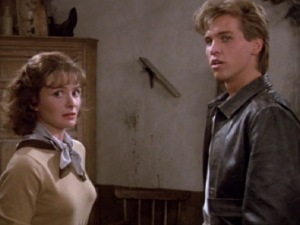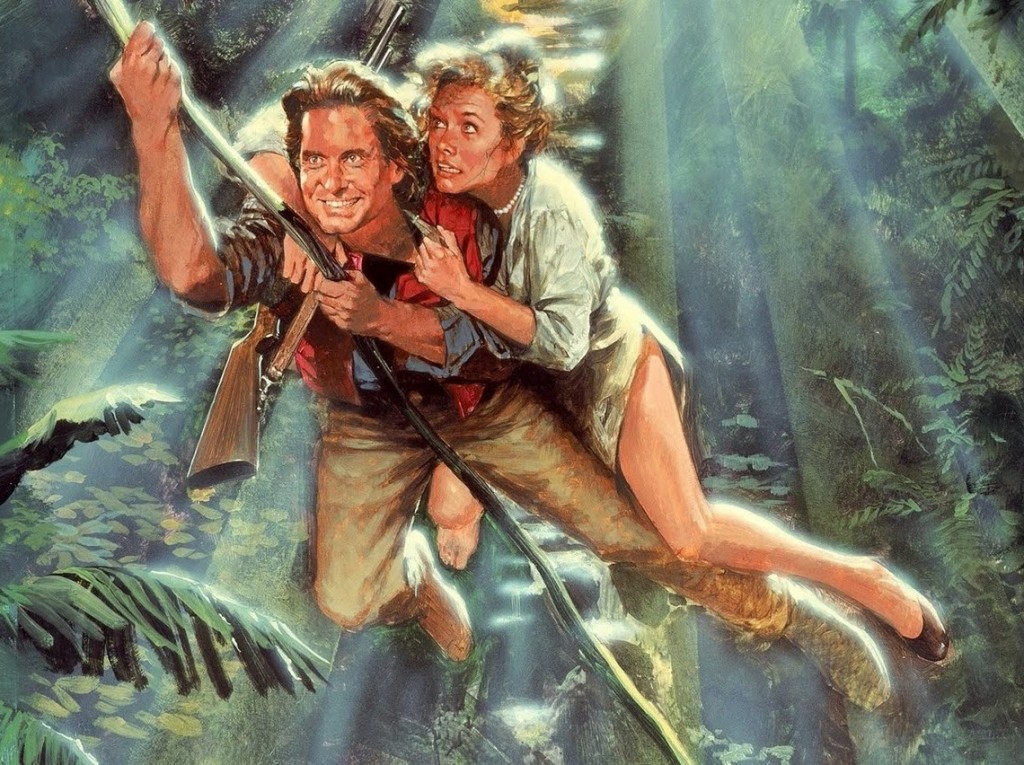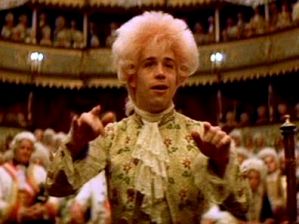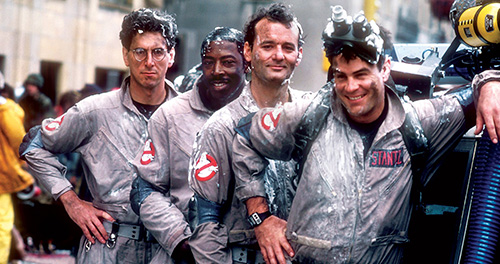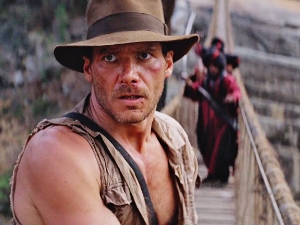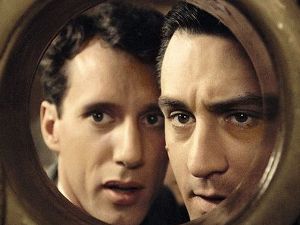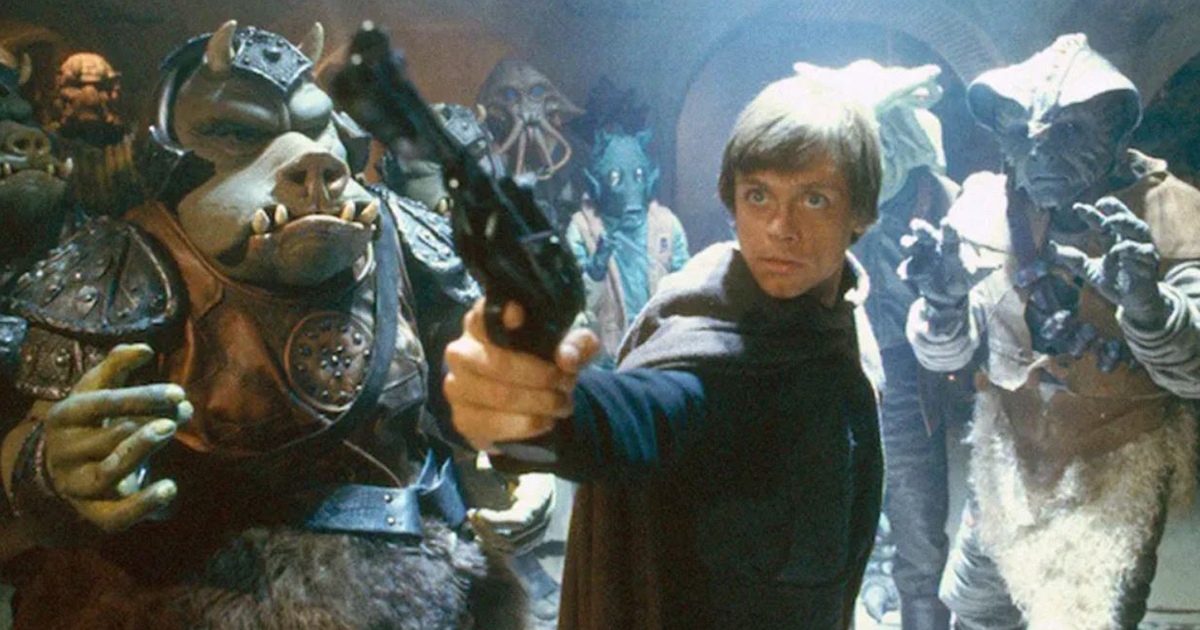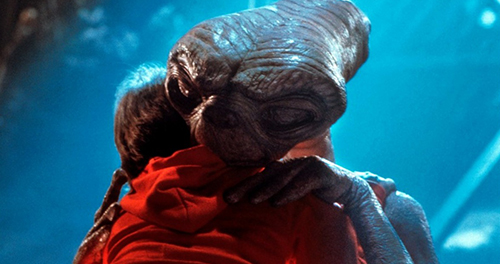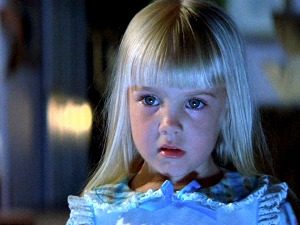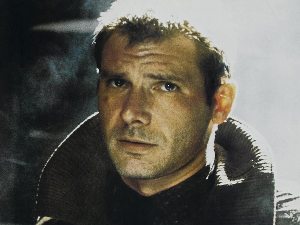Romancing the Stone (1984)
[9]
This is the ultimate romantic adventure, complete with a great cast, exotic locations, and measured doses of action, humor, and heart. Michael Douglas and Kathleen Turner never looked better. They have that ephemeral “chemistry”, the kind that keeps you glued to the screen, rooting for them. The screenplay by Diane Thomas is well paced and constructed, giving plenty of breathing room to a romantic relationship that evolves naturally and believably. Director Robert Zemeckis (Back to the Future, Forrest Gump) sprinkles memorable action scenes throughout the journey, including the swing across the gorge, the Bronco chase, and the waterfall. I like the final showdown among all the adversaries, and how a certain alligator figures into the conclusion. I’m also fond of Alan Silvestri’s score. It may not be the traditional big orchestra type, but the contemporary/Caribbean/piano lounge feel (odd as it may be) gives the movie a distinct, appropriate sound.
The screenplay by Diane Thomas is well paced and constructed, giving plenty of breathing room to a romantic relationship that evolves naturally and believably. Director Robert Zemeckis (Back to the Future, Forrest Gump) sprinkles memorable action scenes throughout the journey, including the swing across the gorge, the Bronco chase, and the waterfall. I like the final showdown among all the adversaries, and how a certain alligator figures into the conclusion. I’m also fond of Alan Silvestri’s score. It may not be the traditional big orchestra type, but the contemporary/Caribbean/piano lounge feel (odd as it may be) gives the movie a distinct, appropriate sound.
Amadeus (1984)
[10]
Straight biographies rarely make great film, but by filtering the subject through another man’s envy, director Milos Forman (One Flew Over the Cuckoo’s Nest) delivers one of the best bio-films I’ve ever seen. This isn’t a film about a composer and his music (how boring would that be?) — it’s a film about an insanely jealous contemporary named Salieri. Salieri, played brilliantly by F. Murray Abraham, turns Mozart’s life and accomplishments into his own personal battle with God. Just watch Abraham pretend to be Mozart’s best friend, all while plotting to destroy him, and you quickly appreciate why the man won an Oscar for his performance.
Ghostbusters (1984)
Indiana Jones and the Temple of Doom (1984)
Once Upon a Time in America (1984)
Return of the Jedi (1983)
E.T. The Extra-Terrestrial (1982)
Poltergeist (1982)
[10]
A suburban family seeks the help of paranormal investigators after their youngest daughter is kidnapped by malevolent spirits inside their own home. Poltergeist, written and produced by Steven Spielberg and directed by Tobe Hooper (The Texas Chainsaw Massacre), is an emotional and visceral thrill ride that I have cherished since childhood. The story’s family, the Frelings, are quirky but entirely believable. You get invested in them before the supernatural shit hits the fan, and this gives weight to all the scares and spectacle that follows.
Blade Runner (1982)
[10]
Blade Runner tackles one of science fiction’s biggest questions: what makes us human? The story by Philip K. Dick is a sci-fi allegory for soldiers returning home with post-traumatic stress, wrapped in the veneer of a neo-noir detective story — all in all, a beguiling blend of genres and content. Harrison Ford plays the detective, Dekkard, a world-weary loner hired to hunt androids (here called replicants) in need of ‘retirement’. The notion is that the replicants were created for war, and once they’re done fighting, they can’t possibly reintegrate back into society. But where real-life soldiers risk losing part of their humanity through warfare, the replicants allege to have discovered theirs — if not through battle, through the things they’ve seen and experienced across the universe.

